Thousands of people like Naseem were caught in Punjab’s devastating September 2025 floods, sparked by torrential monsoon rains and the catastrophic overflow of the Chenab, Ravi, and Sutlej rivers. According to the Provincial Disaster Management Authority (PDMA), more than 4.5 million people were affected.
The human and material cost were stark: over 4,700 villages were submerged, hundreds of lives were lost, and millions were temporarily displaced. The southern districts of Multan and Muzaffargarh bore the brunt, witnessing widespread destruction of farmland and the collapse of essential services.
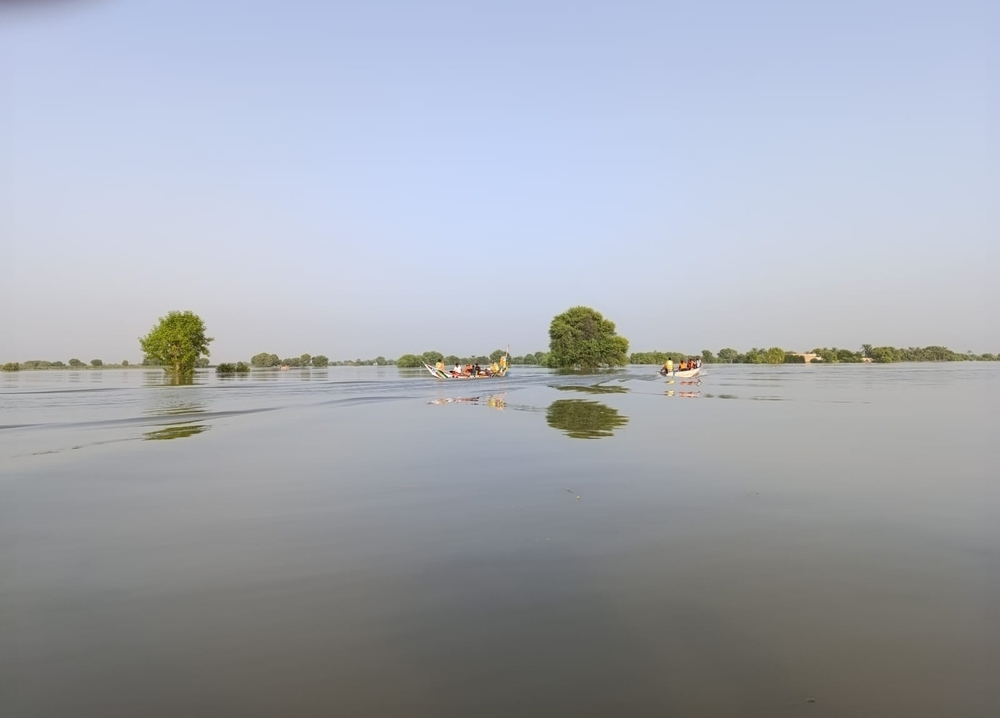
By mid-September Médecins Sans Frontières (MSF) had deployed an assessment team to South Punjab to identify the most urgent needs. “We visited Jalalpur Pirwala tehsil (administrative subdivision) in Multan district, which was hit from both sides, the Sutlej River on the eastern side and the Chenab River on the western side,” said Ejaz Zareen, MSF emergency team coordinator.
Zareen described a landscape transformed by the floods. “When we visited the tehsil from the Sutlej River side, the entire area was inundated. We travelled by boat to the affected locations, where communities had been relocated to camps along the main roads.”
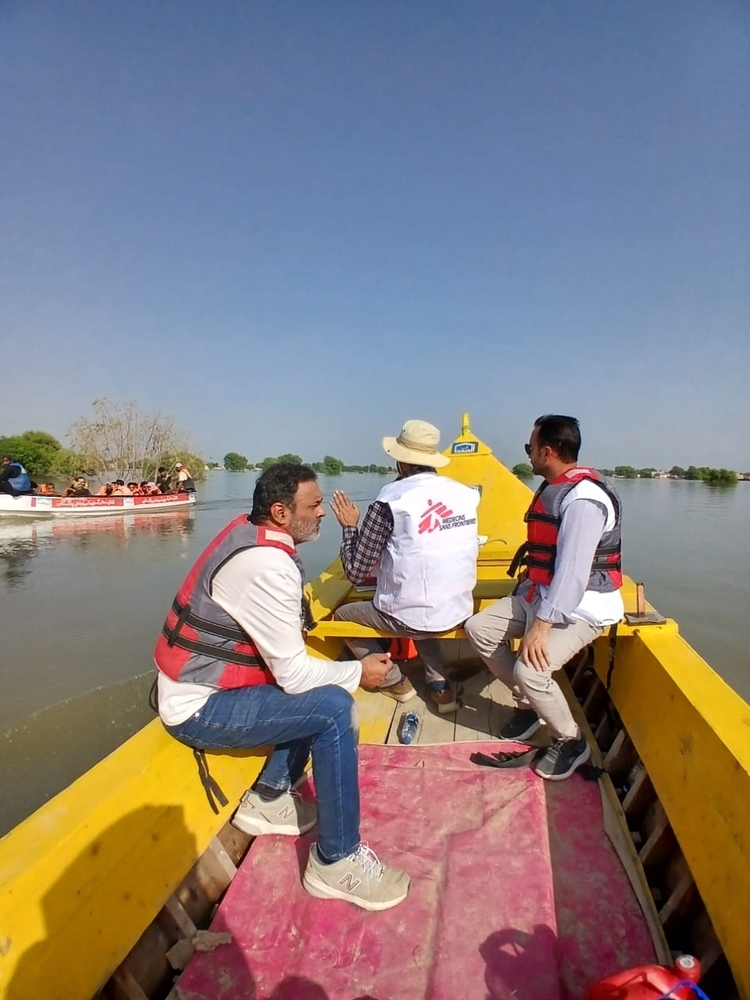
The MSF team visited the camps to assess medical needs, where several other organisations were already providing services. The team also conducted assessments along the Chenab River, including basic health units that had been submerged for weeks and surrounding areas. Following the assessments, MSF established a mobile clinic that provided services across three locations: Adoo Wali, Basti Bahara, and Basti Tibbi Sohrab.
Naseem visited the mobile clinic in Basti Tibbi Sohrab for treatment of a severe skin infection she had contracted after returning to her family’s ruined home. “My children are still with my sister in Multan. I came back to clean the mud from our house, which has been badly damaged,” she said.
Between 27 September and 10 October, MSF medical teams conducted 2,255 consultations, averaging 205 per day. During this period, there was heightened concern about potential disease outbreaks, particularly in the aftermath of the floods, with reports of thousands of acute watery diarrhoea (AWD) cases. The mobile clinic played a key role in actively monitoring health conditions on the ground, enabling early detection and rapid response in case outbreaks escalated. Although no major post-flood outbreaks of malaria, dengue, or AWD were recorded, MSF staff treated a high prevalence of skin infections, respiratory problems, unexplained fevers, and gastrointestinal illnesses. Additionally, two clinically diagnosed cases of cutaneous leishmaniasis were referred to the Ministry of Health (MoH) for further investigation and treatment.
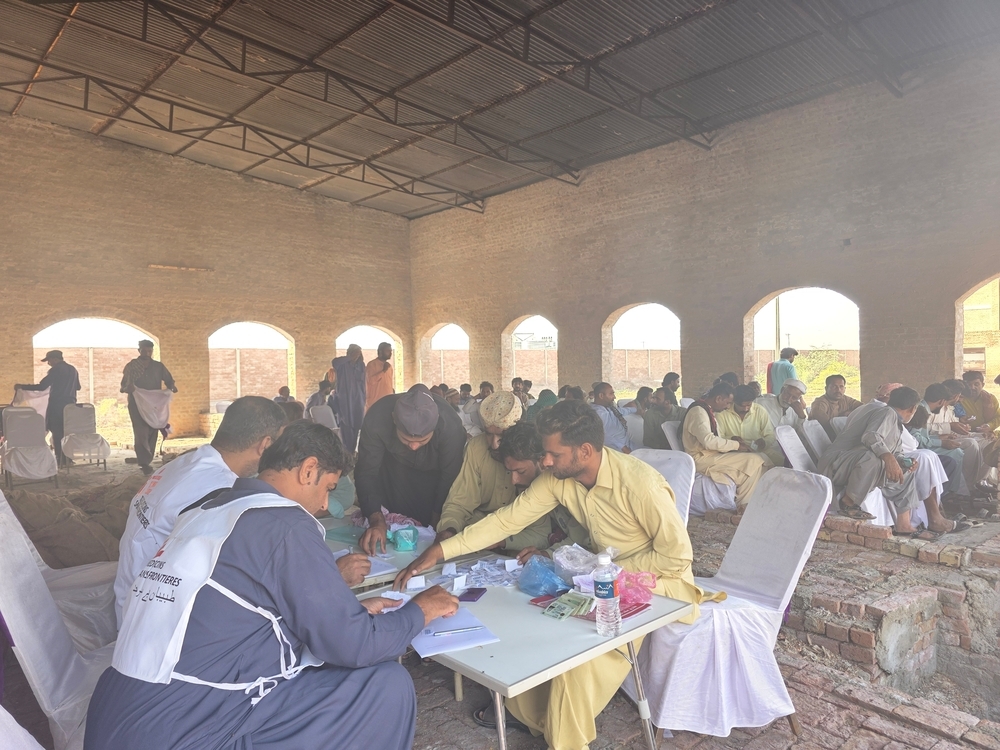
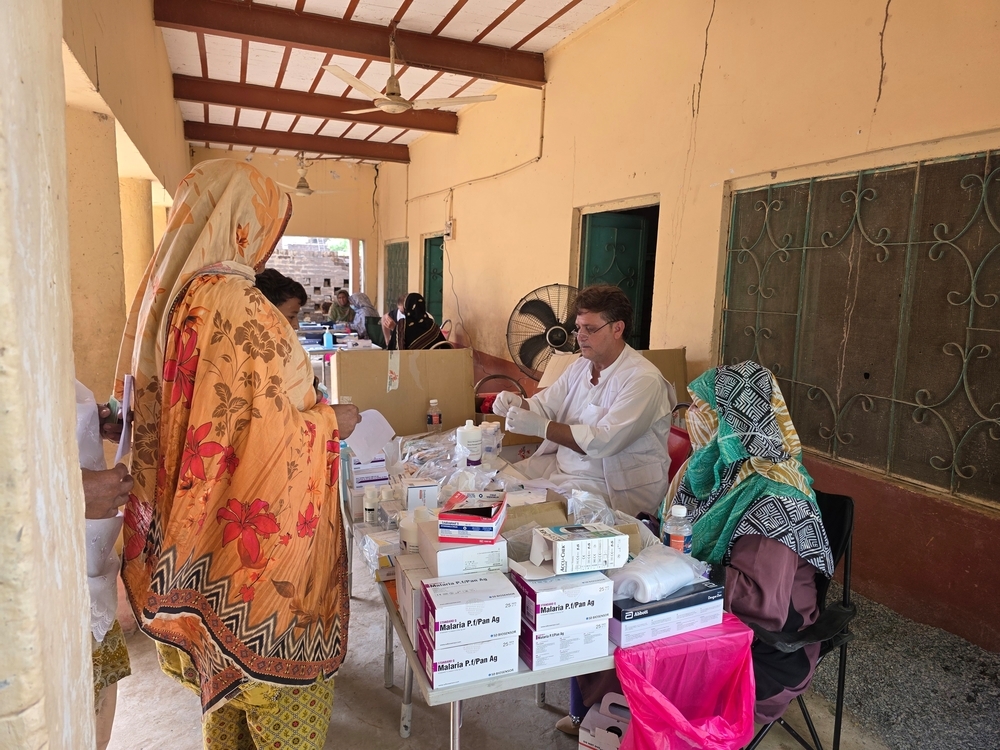
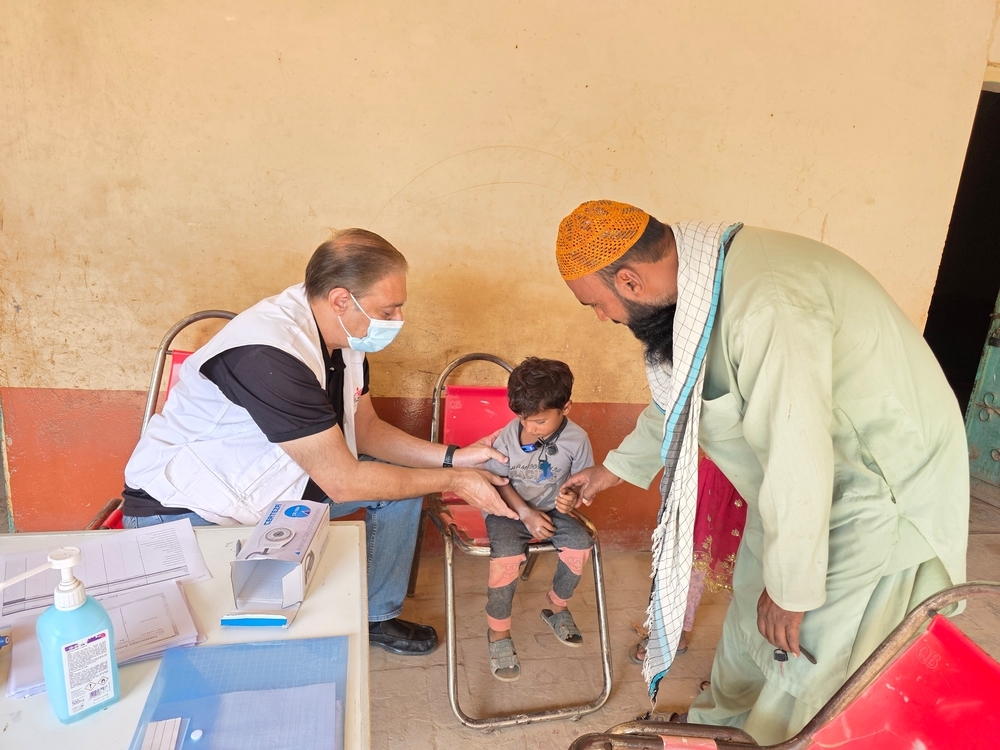
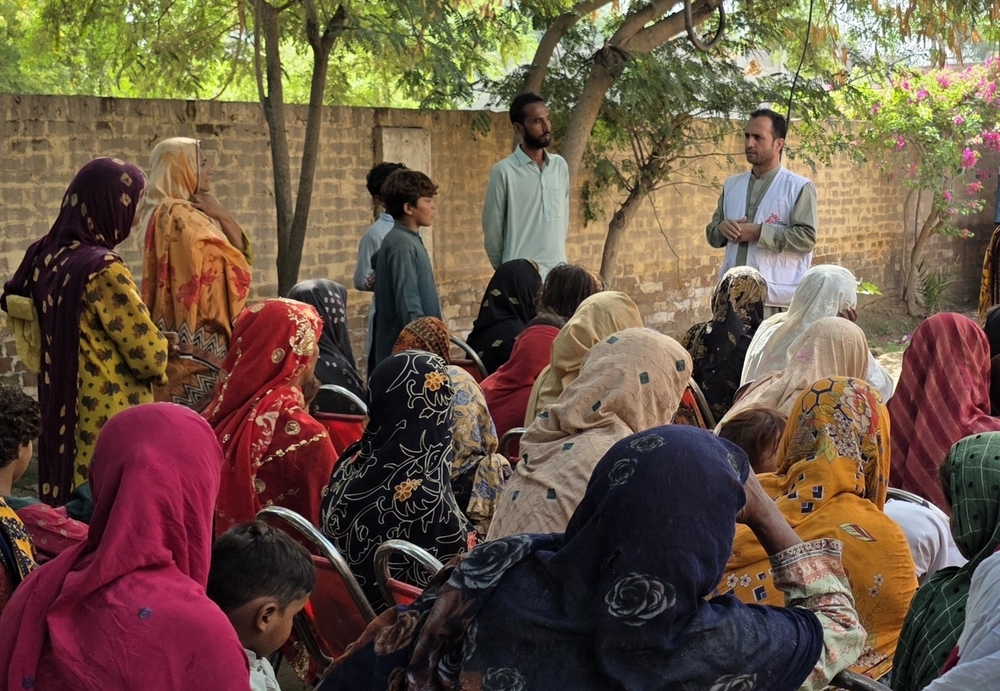
In early October, MSF began distributing essential non-food items to help families during their return. In Moza Narol, located along the banks of the Chenab, MSF provided 1,000 families with 1,000 hygiene kits, 1,000 kitchen kits, 3,000 blankets, 2,000 buckets, and 2,538 mosquito nets. In Alipur Tehsil, Muzaffargarh, a further 100 families received hygiene kits, blankets, and water containers. MSF also supported the local healthcare system by donating 57 types of essential medicines and medical supplies to the district health office.
After over two weeks of response, MSF has now concluded its emergency operation in Punjab province, after delivering critical medical aid and essential supplies to the affected families.
MSF has operated in Pakistan since 1986 and currently runs health projects including mother and child healthcare, tuberculosis and cutaneous leishmaniasis care, and emergency response across all four provinces of the country.












